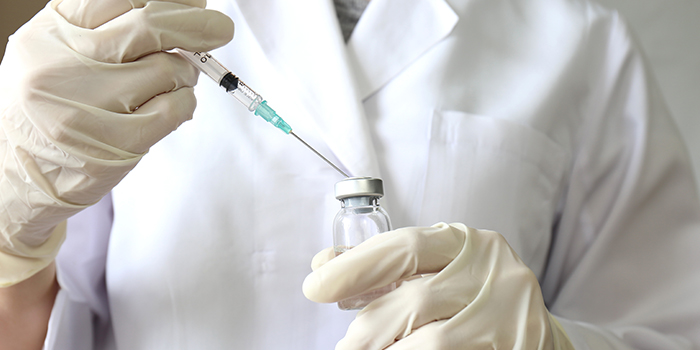Some people who have mesothelioma don’t produce enough of a certain enzyme. The lack of this enzyme is thought to help mesothelioma grow and spread.
Researchers in England and in the U.S. recently wrapped up a Phase 2 clinical trial of a drug designed to make up for this enzyme shortage.
The results seem encouraging. According to the researchers, the drug extended the mesothelioma survival time of many of the patients who took it.
The drug is called pegylated arginine deiminase. Don’t try to pronounce those three words. Just call the drug by the shorthand name its makers have given it — ADI-PEG20.
Arginine Helps Mesothelioma Grow
Mesothelioma is a cancer that needs a certain amino acid in order to grow. The amino acid it needs is called arginine.
The more arginine there is, the more aggressive the mesothelioma becomes. You get more arginine if there is less of the enzyme argininosuccinate synthetase 1 (ASS1).
ASS1 is the enzyme mentioned at the beginning of this article. It’s the enzyme some people with mesothelioma don’t produce enough of.
ADI-PEG20 makes up for the shortage of ASS1. Normalizing the levels of ASS1 causes there to be less arginine. Mesothelioma growth slows and even halts as the amount of arginine goes down.
Think of what happens when the gas tank in your car runs dry while you’re driving on the highway. Your car sputters to a stop. Same thing with mesothelioma cells that run out of arginine.
Mesothelioma Trial of ADI-PEG20
The clinical testing of ADI-PEG20 took place at a number of cancer centers in the United Kingdom. There were 68 mesothelioma patients participating.
All of the patients had the malignant pleural form of mesothelioma. It was well-advanced in all of them. And all of them were found to be producing little or no ASS1.
Approximately 45 of the study patients were given ADI-PEG20 once a week. The remaining patients received no ADI-PEG20.
All 68 checked in with the researchers every so often for months afterward. They did this so the researchers could see how things were going for each patient.
It turned out that taking the ADI-PEG20 improved progression-free survival time. According to the researchers, it reduced the risk of progression death by 44 percent.
The researchers concluded that putting the brakes on arginine was the reason progression-free survival improved. They also concluded that doing appears to be safe for patients.
Of course, more testing is going to be required before ADI-PEG20 can become an accepted therapy. The researchers themselves said so in wrapping up their report of findings.
The findings from this ADI-PEG20 clinical trial were published in the September 20166 online edition of JAMA Oncology. The title of the article is “Arginine Deprivation with Pegylated Arginine Deiminase in Patients with Argininosuccinate Synthetase 1–Deficient Malignant Pleural Mesothelioma.”
The authors are mainly from the United Kingdom. The institutions they belong to include Queen Mary University of London, King’s College London, University College London and a number of major British hospitals.
One of the participating researchers was from the Cleveland Clinic in Ohio. Also contributing to the article was a scientist from Polaris Pharmaceuticals in San Diego, California.

